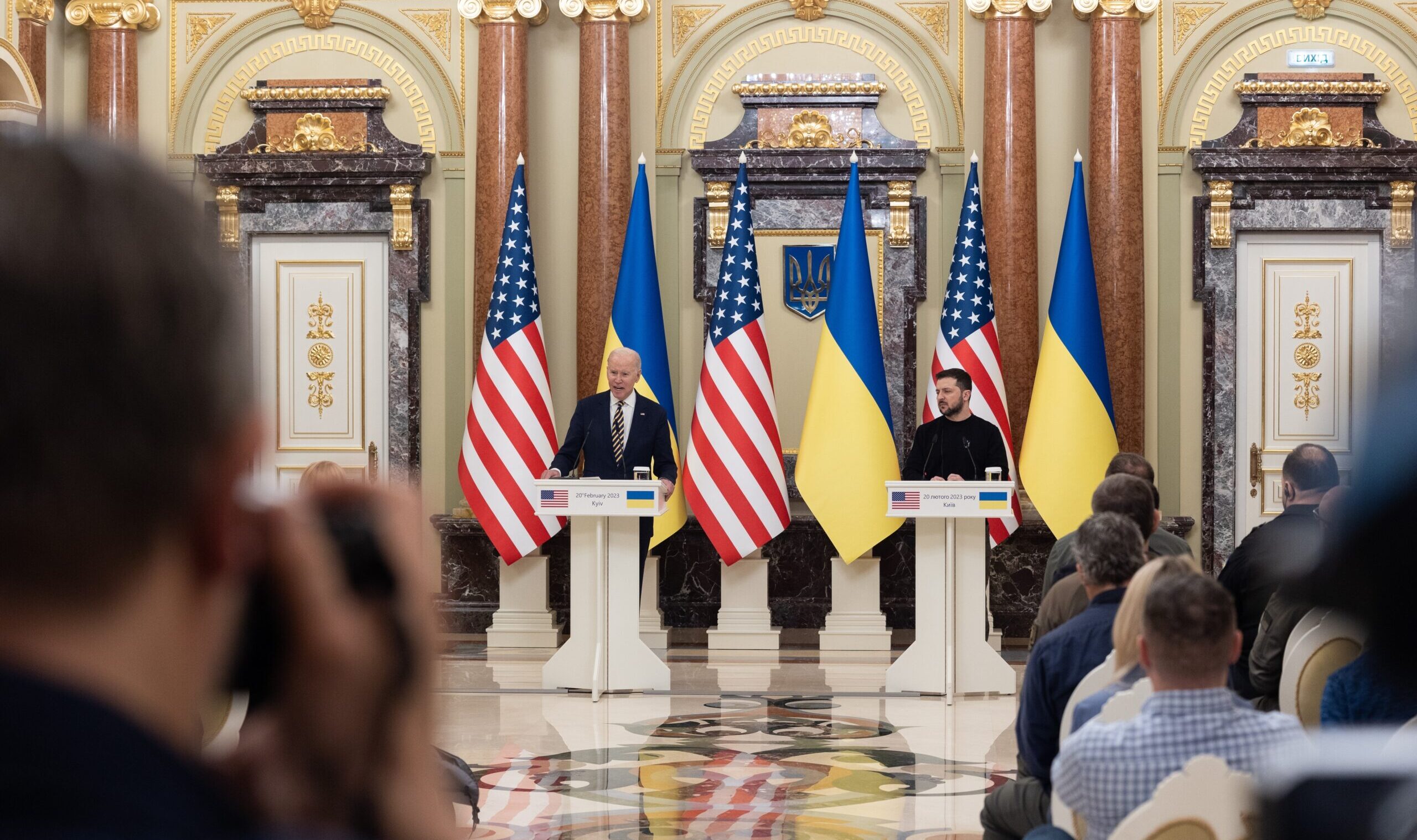Vance’s Weapon in the Cold Civil War
The Ukraine Aid Transparency Act will clarify who is on the side of an unelected technocracy and who is not.

The American Conservative reported earlier this week on a bill proposed by Sen. J.D. Vance of Ohio that would compel the fullest accounting to date of American aid rendered to Ukraine, including via third-party nations. The proposal would address the ongoing problem of mystery spending on our proxy war with Russia: the president’s broad discretionary powers, which, when used as they have been, defy ordinary accounting and undercut the congressional power of the purse. Hence, the Vance legislation cuts to the core of the Ukraine dispute, which isn’t about the prudence of arming Kiev or the nature of American interests in Europe or the size of the American deficit (which is still a concern in some quarters). It has become a conflict over our form of government.
It’s difficult to tell at this late date, but the American constitutional order is built around a robust form of legislative supremacy. The composition of the Senate is the only unamendable section of the Constitution; the Senate is also, via the impeachment mechanism, the nation’s highest court. (“Supreme Court” is in some sense a bit of a misnomer.) We have no office of dictator, no constitutionally recognized states of exception; we have no notion of “the Crown in Parliament.” The powers of ordering peace and war ultimately and without reservation reside in Congress and are devolved at its sufferance.
The Claremont Institute’s Chairman Tom Klingenstein has written and spoken about the American “cold civil war”—how our public life is no longer merely a deliberative back-and-forth over particular policies but a dispute over the actual form of government and, particularly, the grades of the franchise and its consequences. One group is, broadly, un- or anti-American, thinks that the structures of the American state are corrupt from inception or that the American people are too stupid, racist, or otherwise venal to be trusted with self-government, and consequently supports rule by enlightened technocrats, who by nature reside in the executive branch. The other group is, broadly, committed to the occasionally ugly hurly-burly of American representative democracy.
U.S. involvement in the Ukraine conflict has become one of the defining flashpoints of this cold civil war. There are good-faith arguments—arguments I happen to agree with—for limiting aid to Ukraine. There are also good-faith arguments for continuing or expanding it, even if I find them unpersuasive. Yet, rather than relying on the strength of those arguments, the Ukraine hawks have made it about whether there should be a debate at all. The Ukrainian cause has been subsumed into the technocratic cause.
“Our base cannot possibly know what’s at stake at the level that any well-briefed U.S. senator should know about what’s at stake if Putin wins,” said Sen. Thom Tillis of North Carolina in February. Michael Brendan Dougherty, our brother in journalism at National Review, rightly points out that this sort of rhetoric is rooted in the premise that the voters are stupid. It is true that we are a republic, not a pure democracy; there is, floating around, the vague residual sense that our politicos ought to have the practical wisdom to be the pilots of the ship of state rather than mere errand boys. Yet the main part of the Ukraine party wants to short-circuit the entire deliberative process. They are insisting on less accountability from the executive and less power for themselves—see the resistance to establishing a special inspector general for Ukraine support. In short, they are passing the buck to the technocrats.
Subscribe Today
Get daily emails in your inbox
This state of affairs is not the exception; the valorization of the executive at the cost of the legislature has become the norm. Rule by camarilla and administrative cabal is our lot. The Department of Homeland Security has single-handedly suspended the southern border, even as it continues to chew away at the rights of citizens. (This is why the impeachment of DHS Secretary Alejandro Mayorkas is important—it is a reassertion of congressional supremacy.) The Department of Justice looks more and more like a political police. The Pentagon, so far as anyone can tell, does whatever it wants.
Nevertheless, in certain respects, the picture is brighter than it has been for some time. Last May, Congress repealed the 1991 and 2002 authorizations for use of military force in Iraq. Legislators of both parties have expressed concern about the unauthorized use of military force in Yemen. There is a real appetite—particularly concentrated in the right flank of the House Republican party, but in some way shared by members of both parties in both chambers—to restore some muscle to the central organ of American national government. It is not efficient, and it is often not very pretty, but tooth-and-nail fights about budgets are the system working as designed; extensive debate about just how much we want to get involved in other countries’ wars is the system working as designed. These powers reside in Congress because it is “inefficient”; it is an organ that discourages rashness.
Vance’s bill not only gives the legislature and the American people a needed tool for deliberating our involvement in this war. In the opposition it draws, it will smoke out the members of the technocratic party—and, in a civil war, cold or not, it’s always helpful to know who is on which side.
Comments